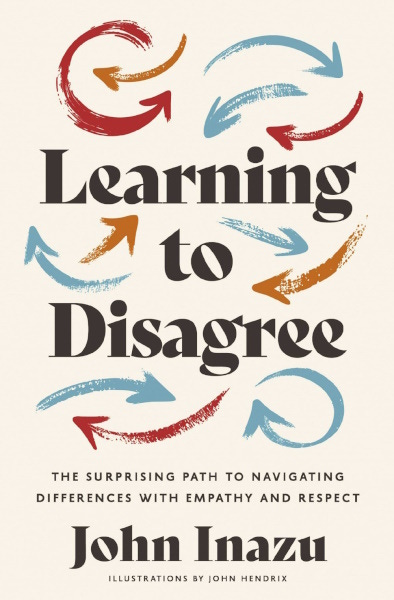Meta's social media site Threads prevents high engagement political content from ranking high on the platform. It reminded me of what happens at many churches.
Last Saturday, in response to the claim that Threads "wants to avoid being a place to discuss news and current events," Adam Mosseri, head of Instagram, the app upon which Threads is based, wrote, "Just to clarify, ... we're not trying to avoid being a place for any news. News about sports, music, fashion, culture is something we're actively pursuing. Political news is the topic where are looking to be more careful." (Meta, the parent company of Instagram and Threads, also owns Facebook.) Mosseri's response confirmed what many, especially political reporters, suspected: Thread posts that share political news and opinions are less likely to be seen.
This is an example of good intentions leading to a bad policy.
The impulse at Threads is understandable. Political discussions often become heated and divisive, therefore, the reasoning goes, just avoid talking about politics altogether and we'll have less heat and division. This is a short term solution that leads to long term problems. Avoidance of our differences doesn't help us learn how to manage our differences. Instead, avoidance causes our differences to build beneath the surface, like pressure in a balloon, until something happens — George Floyd murdered, global pandemic, Russia invades Ukraine, etc. — that causes the balloon to pop, and we're left unprepared to deal with it.
In my experience, something similar happens at many (maybe most?) churches. We tend to avoid talking about politics because we know how divisive those conversations can be (good intentions). But then political discipleship isn't happening in the church, so it's happening elsewhere, and these alternatives are often very partisan and not Jesus-like (bad policy).
Besides better and more intentional political discipleship, all of us, inside and outside the Church, in-person and online, should work on learning to disagree well. If this interests you, I have a book recommendation, and we can read it together this Summer for the next AVC book club.
Prof. John Inazu's new book is Learning to Disagree: The Surprising Path to Navigating Differences with Empathy and Respect.
Here is the description:
Are you discouraged by our divided, angry culture, where even listening to a different perspective sometimes feels impossible? If so, you're not alone, and it doesn't have to be this way. Learning to Disagree reveals the surprising path to learning how to disagree in ways that build new bridges with our neighbors, coworkers, and loved ones--and help us find better ways to live joyfully in a complex society.
Get a copy at the AVC Bookshop (AVC gets a percentage of the sale) or your favorite bookstore.
Beginning June 10, the AVC Book Club will meet every Monday, 8pm eastern, until July 29. Sign up now!
Our Next Conference!
Politics, Polarization, and Peacemaking
Helping pastors heal the wounds of our divided nation in their churches and communities
When: July 25
Where: Mercer University North Campus in Atlanta.
EARLY BIRD SPECIAL: The first 20 tickets will be sold for only $10!
You can buy tickets now or sign up here to get on your email list for updates.
What Else We're Reading
NBC News: “Dinesh D’Souza election fraud film, book ’2000 Mules’ pulled after defamation suit”
Conservative gadfly Dinesh D’Souza’s film and book “2000 Mules,” which pushes false conspiracies about voter fraud in the 2020 presidential election, has been removed from distribution by its executive producer and publisher, according to an announcement Friday.
Salem Media Group’s announcement that it had yanked D’Souza’s film and book also apologized to Mark Andrews, a Georgia man falsely accused in “2000 Mules” of ballot stuffing.
The Conversation: “What QAnon supporters, butthole sunners and New Age spiritualists have in common”
What began as an attempt to understand the QAnon conspiracy movement quickly expanded into an exploration of a wide range of alternative belief systems.
These include, but are not limited to, discredited intellectuals who promote race science; butthole sunners who believe that by harnessing the sun’s rays, they live longer; and semen retention enthusiasts, which is a practice that discourages ejaculation as a way to boost testosterone levels.
Most researchers have understood conspiracy theories and alternative beliefs as being a product of poor education or misinformation spread on social media. But recent research has found that support for them exists regardless of educational level or income. Some of the most privileged people in U.S. society hold deeply conspiratorial beliefs, as do sports fans, yogis and video game enthusiasts.
While some many say that believing in UFOs or Bigfoot may not be that big of a problem, these ideas can lead to real-world harms. Butthole sunning, for example, has been linked with cancer.
By understanding how conspiracy theories and alternative belief systems intersect and evolve over time, you can see how anyone – no matter their political leanings – can become subsumed by them.
WaPo: “The Bulwark: How could it be wrong when it feels so center-right?”
“I have to say, I feel politically pretty lonely in general,” Zurbriggen says later that evening, in the lobby. “Because a lot of my friends, conservative friends that I grew up with, went along with the MAGA movement, Trump.”
That’s not an official comment from the city, he clarifies. Despite the suit he’s wearing, Zurbriggen has come to the Bulwark show in a personal capacity. He was looking for an opportunity to feel less alone, like others here. “I’m a conservative at heart. I have conservative views, but, you know, I don’t believe in what Trump says, and I do think he’s authoritarian,” he says. “So I felt very isolated. And the Bulwark is an outlet for me.”
The Bulwark, a franchise of 11 podcasts and six Substack newsletters, has become an outlet for a lot of people. Not nearly as much so as Trumpism, but, well — that’s kind of the whole idea. It has picked up those that MAGA, and polarization in general, left behind: anti-Trump conservatives hitchhiking with moderate Democrats on the road to the 2024 election and beyond.







